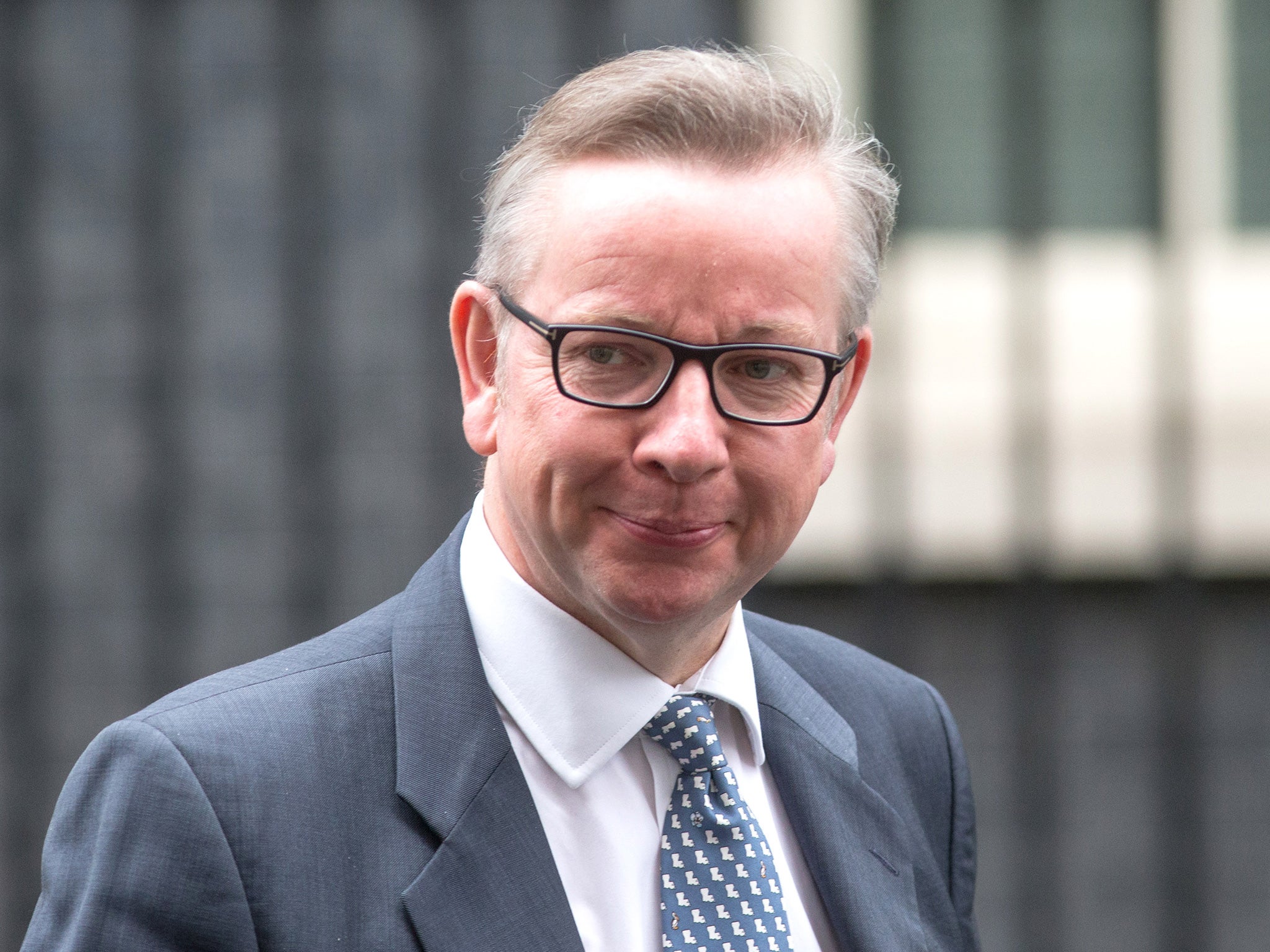Michael Gove faces fresh calls to scrap court charge from Lord Chief Justice
Lord Thomas of Cwmgiedd says 'it's obvious that there is a problem with financial penalties as a whole'

Your support helps us to tell the story
From reproductive rights to climate change to Big Tech, The Independent is on the ground when the story is developing. Whether it's investigating the financials of Elon Musk's pro-Trump PAC or producing our latest documentary, 'The A Word', which shines a light on the American women fighting for reproductive rights, we know how important it is to parse out the facts from the messaging.
At such a critical moment in US history, we need reporters on the ground. Your donation allows us to keep sending journalists to speak to both sides of the story.
The Independent is trusted by Americans across the entire political spectrum. And unlike many other quality news outlets, we choose not to lock Americans out of our reporting and analysis with paywalls. We believe quality journalism should be available to everyone, paid for by those who can afford it.
Your support makes all the difference.Michael Gove is under mounting pressure to scrap controversial criminal courts charges after the fees were criticised by England and Wales’ most senior judge.
The Lord Chief Justice, head of the judiciary, said the policy had “not gone correctly” and called on Mr Gove, the Justice Secretary, to find “an interim solution” to replace a range of new financial penalties introduced by the Coalition Government.
“It’s obvious that there is a problem with financial penalties as a whole, so I would hope this is an area the Government will engage with as soon as possible but in a wider context,” Lord Thomas of Cwmgiedd said.
Shailesh Vara, a justice minister, faced questions from MPs amid growing opposition to the charges, which experts have warned place a perverse incentive on defendants to plead guilty.
It’s obvious that there is a problem with financial penalties as a whole, so I would hope this is an area the Government will engage with as soon as possible
The fees are increased if a defendant denies guilt but is later convicted, a rule that is driving penniless defendants to “forgo their freedom due to financial constraints”, the Labour MP Tulip Siddiq said, during a Westminster debate.
Charges at a magistrates’ court can rise from £150 for a guilty plea to £520 if a not-guilty plea is given and the defendant convicted. At a Crown Court, fees can rise from £900 to £1,200.
“In 21st-century Britain we should be appalled by the miscarriage of justice, especially when defendants are forgoing their freedom due to financial constraints,” Ms Siddiq said as she castigated the Conservatives for bringing in the charge. “In some magistrates’ courts about 80 per cent of defendants are dependent on state support to meet basic living costs, which makes this issue even more pressing.
“We are risking having their voice at best constrained, at worst shut out from our justice system. For a party apparently so adamant to impose British values… I can think of no other British government that has attacked the principles of Magna Carta quite in this manner,” she said.
Mr Vara refused to confirm whether a government review of the policy, announced by Mr Gove, would take three years or could be quicker. He described it as “regrettable” that a number of magistrates have already resigned over the charges.
“The Government believes that convicted offenders should take responsibility and contribute toward the cost they impose on the criminal courts,” he said.
Alistair MacDonald, QC, chair of the Bar Council, said it was not clear the charges were on track to bring in the £265m the Government forecast in this parliament. “The criminal courts charge does not enjoy popular support,” he said. “Members from both Houses and from across all political parties are making the case for it to be reformed.”
Join our commenting forum
Join thought-provoking conversations, follow other Independent readers and see their replies
Comments